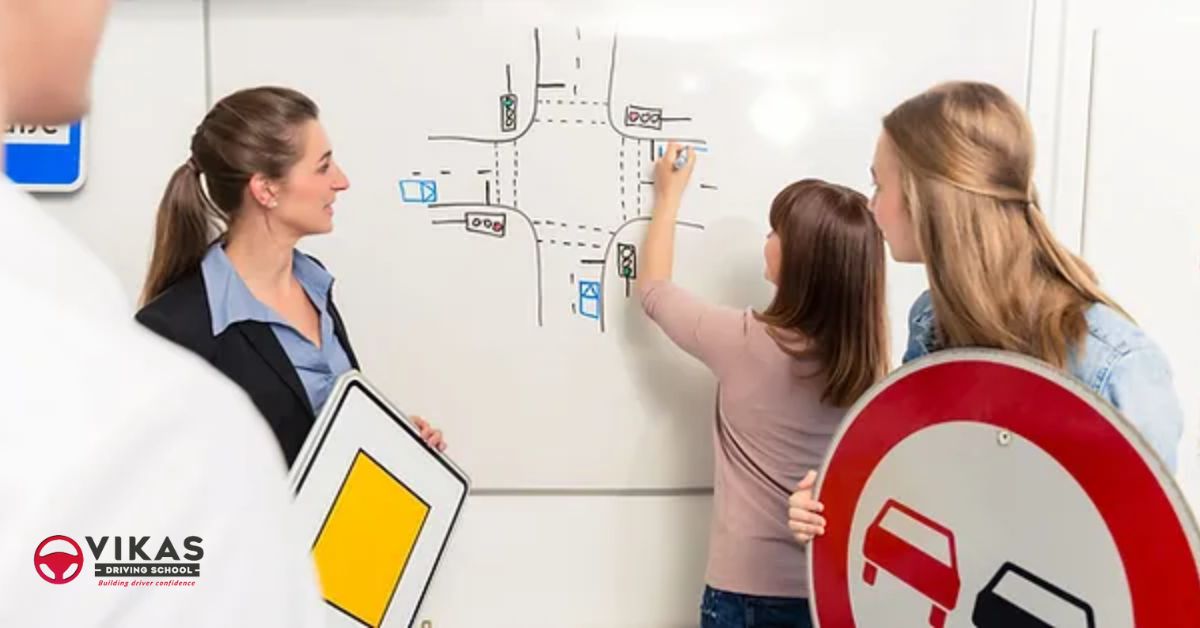Embarking on the journey to becoming a licensed driver involves enrolling in a reputable driving school and completing a comprehensive driving course. Aspiring drivers often wonder about the average duration of the entire driving course, as it helps them plan their commitments and set realistic expectations. In this blog, we will delve deeper into the factors that influence the duration of a driving course, and the key components of the curriculum, and provide insights into the average time it takes to complete the course. Understanding the timeline of the driving course will assist learners in making informed decisions and setting themselves up for success on the road.
The Key Components of a Driving Course:
A well-structured driving course typically comprises two essential components: theoretical or classroom sessions and practical driving lessons in Melbourne. The theoretical aspect covers fundamental road rules, traffic regulations, defensive driving techniques, and essential safety guidelines. On the other hand, practical driving lessons provide hands-on experience behind the wheel, allowing learners to apply the knowledge gained in real-life driving scenarios.
Factors Influencing Course Duration:
The average duration of a driving course can vary based on several factors, including the learner’s prior driving experience, their ability to grasp driving concepts, the frequency of lessons, and the intensity of the course. Beginners or learners with little driving experience may require more hours of practice compared to those with some familiarity with driving. Additionally, the pace at which learners can progress and demonstrate proficiency in driving skills will influence the overall duration of the course. So, the duration of learning hours to pass a driving test can vary based on the driver’s experience and skills.
Duration of Theoretical/Classroom Sessions:
The duration of theoretical or classroom sessions within the driving course is determined by the driving school’s curriculum and the depth of topics covered. Typically, these sessions can range from a few hours to several days, depending on the complexity and scope of the material. Reputable driving schools in Melbourne often provide flexible scheduling options to accommodate learners’ availability, ensuring that they receive comprehensive theoretical training.
Duration of Practical Driving Lessons:
Practical driving lessons are a critical aspect of the driving course, offering learners hands-on experience under the guidance of certified driving instructors. The number of practical lessons required can vary based on the learner’s progress and aptitude for driving. On average, learners may need anywhere from 10 to 20 or more driving lessons. However, it’s important to note that individual progress and comfort levels behind the wheel may vary, and the driving school’s instructors continually assess each learner’s readiness to move on to more advanced driving skills.
Intensive Driving Courses:
For learners seeking a quicker path to obtaining their driver’s license, some driving schools offer intensive driving courses. These condensed programs often involve more frequent and longer driving lessons, sometimes spread over consecutive days or weeks. While intensive courses can be advantageous for individuals with time constraints, they require dedication and focus to absorb the information and skills within a shorter timeframe.
The Average Duration of the Entire Driving Course:
Considering the factors mentioned above, the average duration of a comprehensive driving course typically ranges from 4 to 8 weeks. This estimation allows for a balanced approach to theoretical and practical training, providing learners with sufficient time to grasp essential driving concepts and gain valuable experience on the road. However, it’s essential to remember that every learner is unique, and some individuals may complete the course more quickly. In contrast, others may take slightly longer based on their learning capabilities.
Conclusion:
The average duration of a comprehensive driving course is influenced by factors such as prior driving experience, learner proficiency, lesson frequency, and course intensity. A well-structured driving course comprises theoretical and practical components, providing learners with a thorough understanding of road rules and hands-on experience behind the wheel. The average duration of the entire course typically ranges from 4 to 8 weeks, though individual progress may vary. Choosing Vikas driving school with experienced instructors will ensure that learners receive high-quality training, setting them on the path to becoming skilled, confident, and responsible drivers.

